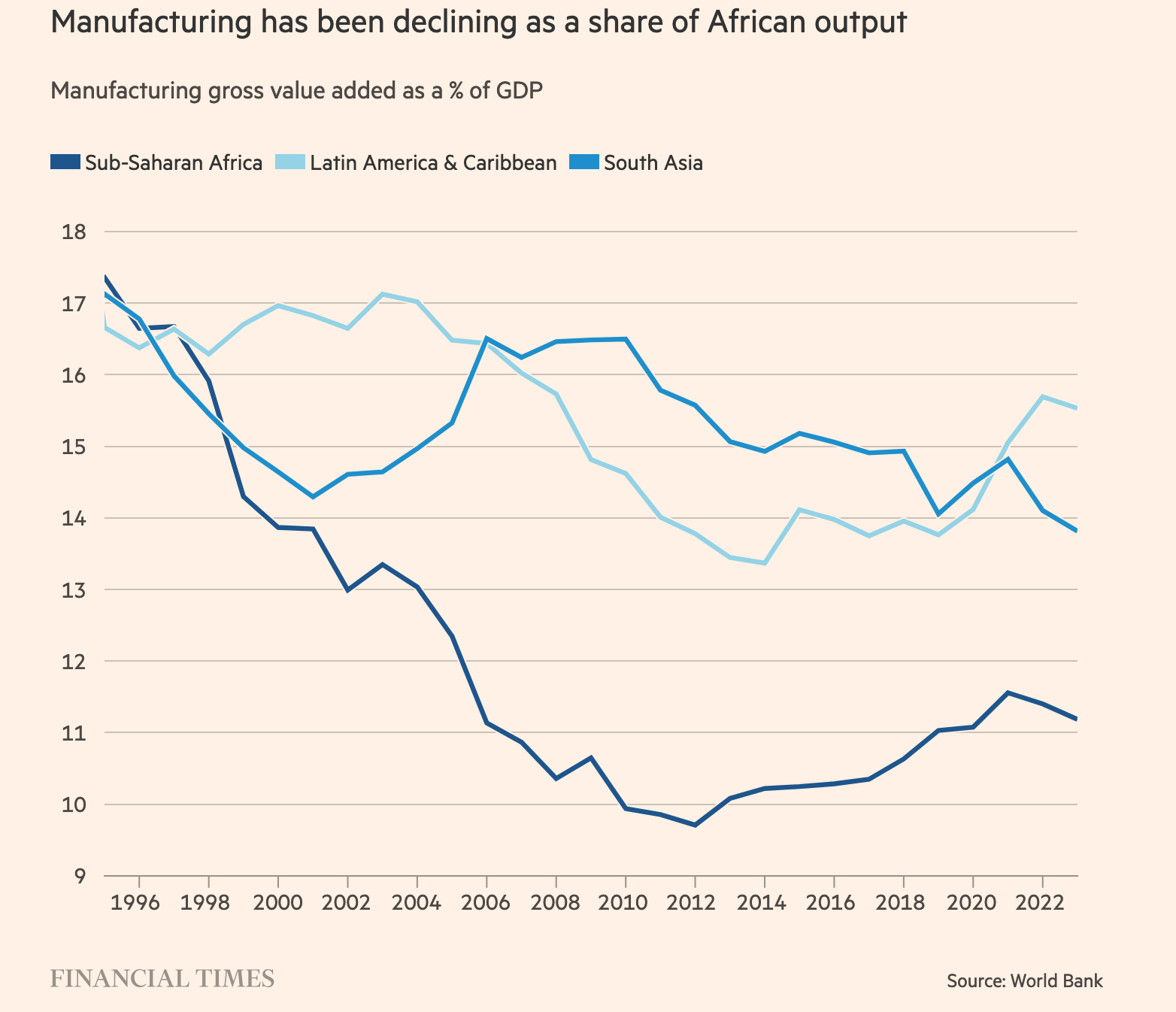Does the road to prosperity start with a tee shirt?
The small country of Benin is showing how to start an industrial revolution quietly.

When I was 15, I signed up for an after-school entrepreneurial programme called Junior Achievement.
The concept was simple enough, get a bunch of high school kids together for 8 weeks. Teach them the fundamentals of starting and operating a business. Give everyone a role to perform. Choose and manufacture a product. Market and sell it. Dissolve the company and split any profit made amongst all of the kids.
Our product? We chose to screen print cheesy slogans on underwear.
If I remember correctly, we all walked away from it with R120 each in profit. But the real value was in the lessons learnt; team work, product selection and design, sales...the most difficult and time consuming of all.
There was something cathartic about creating a product from nothing and then being able to turn that into profit. It gave us all a sense of purpose and camaraderie that I'd never experienced before. We were in it to 'win or lose' together.
Could this simple manufacturing entrepreneurial recipe work to build the trade confidence of nations too?
Well, according to research it can. And the country of Benin (yes, we also needed to look it up on the map) may be the perfect case study to test whether the small-scale manufacturing of tee shirts can in fact lead the country into a new era of prosperity.
The FT has the scoop on Benin's farm-to-factory plan of action:
“We call it farm to fashion,” says Ramakrishnan Janarthanan, chief development officer at Arise Integrated Industrial Platforms, a Dubai-based industrial group that is investing €550mn in textiles and apparel alongside Benin’s sovereign wealth fund and a consortium of local cotton-ginning companies. The T-shirt, Janarthanan explains, holding up the modest-looking item, has come from cotton that has been grown, picked, ginned, spun, woven into fabric and dyed in Benin, before being cut and stitched. “Can you imagine there are so many processes before you make a shirt? We want to capture the whole value chain,” he says.

Manufacturing is where the focus should be
The area that holds the most promise for economies looking to develop is manufacturing. Unlike services, manufacturing (especially light manufacturing) is fertile ground for innovation, effective marketing and brand building, job creation and forging a competitive advantage. What's lacking is government policy support to create the conditions under which light manufacturing can flourish. The sector is primed for growth, it might just need some special attention and a touch of creative thinking to get it really flourishing.
If school kids from diverse backgrounds can partner to turn a profit from a manufactured product in just eight weeks, imagine what can be achieved by a country taking the same approach seriously.

